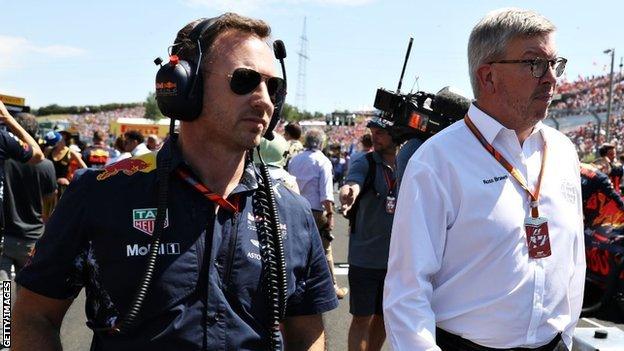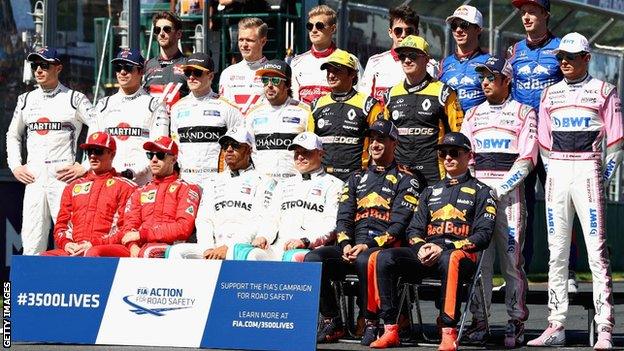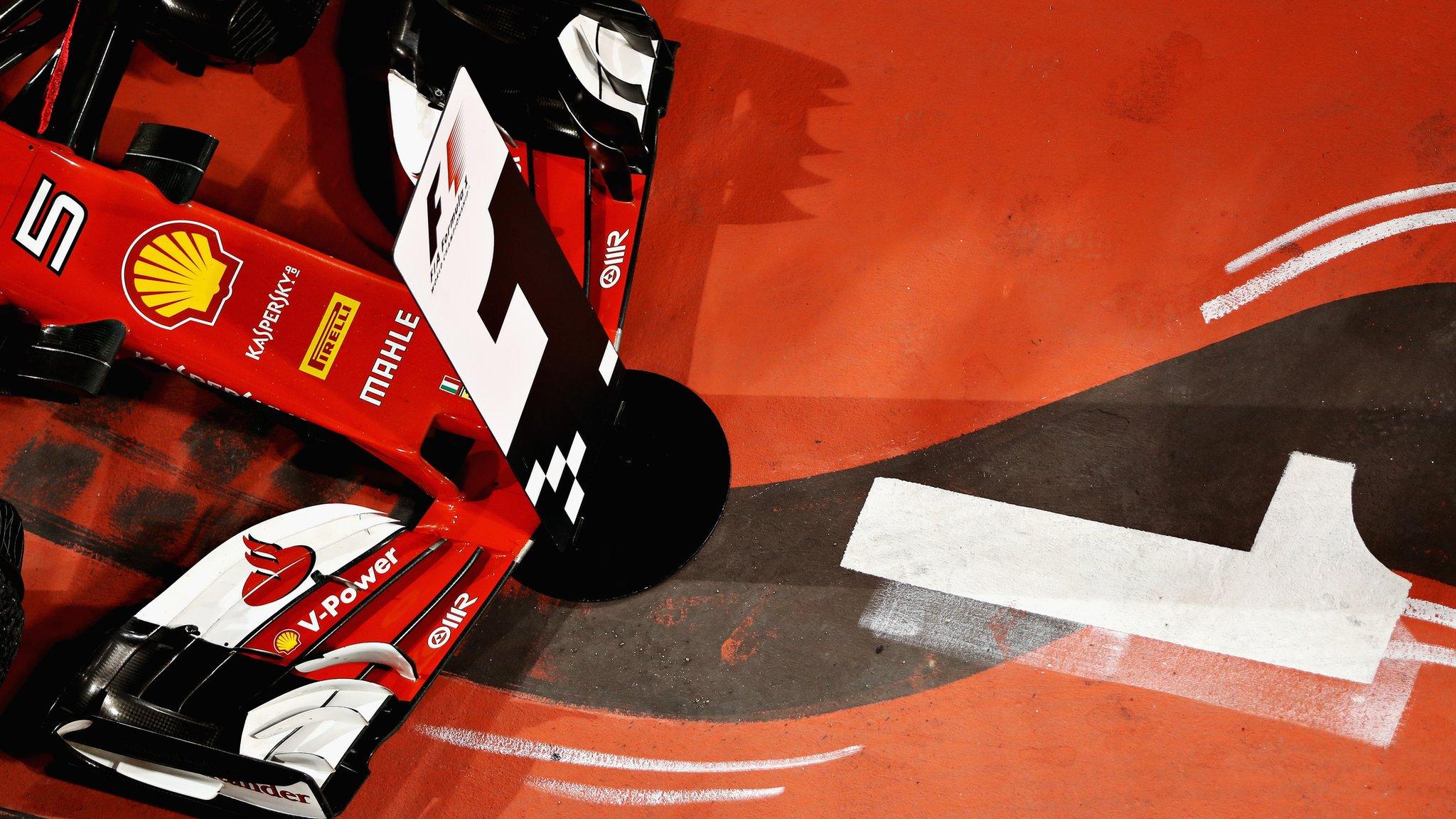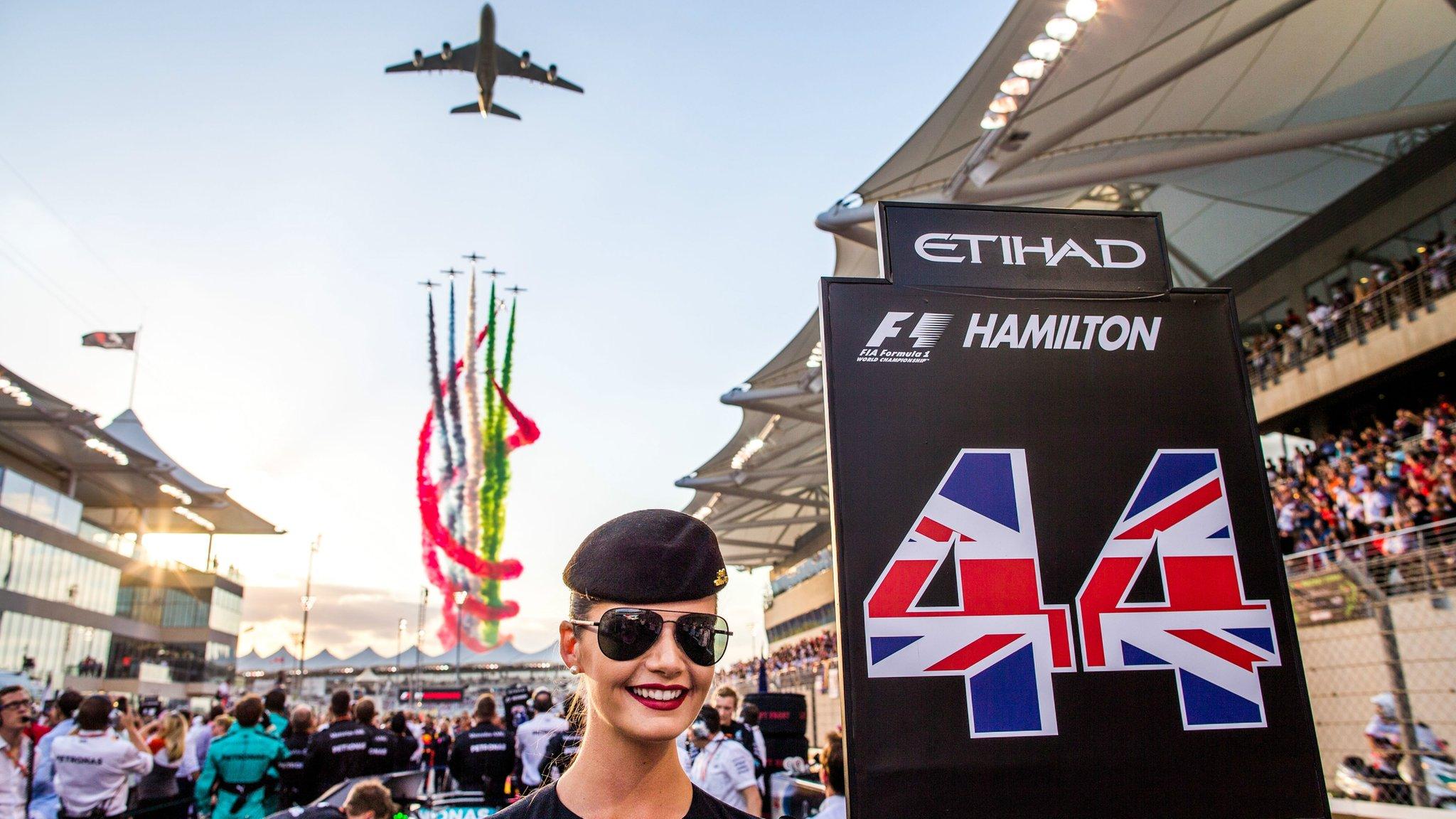Bahrain Grand Prix: Formula 1 bosses to reveal sport's future
- Published

Ross Brawn (pictured with Red Bull team principal Christian Horner) became managing and technical director of Formula 1 in January 2017
Bahrain Grand Prix on the BBC |
|---|
Dates: 6-8 April. Circuit: Bahrain International. |
Coverage: Practice, qualifying and race across BBC Radio 5 live sports extra and online. Live text commentary, leaderboard and imagery on BBC Sport website and app. |
Formula 1 bosses will lay out their vision for the sport's future to the teams at the Bahrain Grand Prix on Friday.
F1 motorsports boss Ross Brawn will explain the plans of Liberty Media, which bought the commercial rights last year, on cost control, revenue and technical rules.
Plans include ways of cutting costs, creating a more equitable split of revenue among teams, a simplified engine and an increased number of standard parts.
It will be the first time teams have heard this amount of detail on Liberty's plans.
F1 is refusing to comment on the detail of the presentation - bosses have said they prefer to try to do their business in private to avoid creating a public debate on major issues.
But the overarching aim is to create a better on-track spectacle and make competing in the sport a more profitable business for all participants at a time when more than half the teams are said to be struggling to make ends meet.
The plan has four main aims:
reduce the gap in prize money earnings between the top and bottom of the field
cut the £300m+ budgets of the top teams to about half that
simpler, cheaper engines that reduce the gap in performance between the best and worst, and open F1 to new entrants
simplify the technical rules to reduce cost by standardising parts that are perceived to have minimal effect on both performance and the show.
F1's plans, with which governing body the FIA is said to be in alignment, are not expected to be presented as 'take it or leave it'. But Liberty's fundamental position is that the sport has to change and time is running out to do so.
Even with room for negotiation, the plans are likely to create unease among the teams.

Twenty drivers from 10 teams are competing in the 2018 Formula 1 season
The car manufacturers involved in the sport have already made clear their opposition to proposals put forward by F1 and the FIA for simplified engines from 2021.
F1 and the FIA want to keep the current architecture of 1.6-litre V6 turbo hybrid engines but with a simplified energy recovery system that both reduces costs and attracts new entrants.
Mercedes and Ferrari have led opposition to the plan and are currently objecting to the proposal to remove the part of the hybrid system that recovers energy from the turbo, the so-called MGU-H.
This is the device that allows the engines to run at revolutionary levels of efficiency. But it is also highly complex and expensive and is seen as part of the reason for Mercedes' domination of the sport since 2014.
Plans to increase the number of standardised parts on cars - for example by forcing teams to use the same gearbox internals - are seen by Liberty as a way of reducing costs while having no impact on the audience.
Ferrari president Sergio Marchionne has already said it will object to what he has described as plans by Brawn "to fight against the DNA of F1".
The big teams are also likely to oppose any attempt to reduce the amount of revenue they receive, especially after the sport's income fell last year, reducing the prize money fund by about 5%.
- Published1 April 2018

- Published2 April 2018

- Published21 November 2018
